- Home
- Philip Pullman
Two Crafty Criminals! Page 9
Two Crafty Criminals! Read online
Page 9
“It’s as good as the first one,” said Zerlina.
“It’s better,” said Angela. “More passionate.”
“It’s a masterpiece,” said Thunderbolt. “It’s revolutionary!”
As for Dippy, all he could say was, “Thank you, kids. Thank you. I can’t hardly believe it …”
The Professor took it in with delight.
“Formidable!” he said. “I shall do my best to provide a body worthy of this—this masterpiece! Truly, it displays an imaginative vision of the equal of Edgar Allan Poe … Leave it with me, dear boy! I shall make it the centerpiece of a display that will astonish the world! Come back on Saturday for the grand opening.”
So they did. Dippy went with them, naturally, with his best schmutter on and his hair stuck down with macassar oil. He looked a treat. Mr. Dobney came too. There was a big crowd, thronging the Museum for a sight of the startling new exhibit. There were posters about it:
“The basement?” said Benny. “That’s the Chamber of Horrors, innit?”
They hurried down the dark, narrow stairs and into the dimly lit, brick-vaulted, cobwebbed dungeon that housed the worst horrors the Waxwork Museum offered. A notice said:
and underneath was added:
The gang’s eyes swept over the scenes of murder and carnage that lined the walls—throats being cut, heads being chopped off—they’d seen it all before. But in one corner an excited crowd was buzzing with chatter, and as the kids looked, two people had to be helped away, pale and shaking.
“Where is it?” said Benny. “What’ve they done with my masterpiece?”
He shoved his way through the crowd, the others close behind. Then they stopped by a sign that said:
Lit by a flickering torch was a scene from a dungeon: a priest, a black-masked torturer wielding a red-hot pair of tongs, and cowering on the floor in rags, a poor shivering figure with the head of Dippy Hitchcock, as modeled by the eminent local artist Mr. Benny Kaminsky.
It was exactly as Benny had made it. Not a bit had been changed, but somehow, in these surroundings, it expressed a hideous, nameless fear, enough to give anyone nightmares. The rolling eyes—the lips drawn back in a cry of anguish—every line of the poor tormented face spoke of despair and horror.
“Hmm,” said Benny. “It never looked like that in the hideout.”
“It’s good, though, Dippy,” said Mr. Dobney.
And the people around seemed to agree.
“Look at the suffering in his eyes!”
“I can’t bear to look at it …”
“They must’ve done things to him what was too horrible to contemplate!”
“He must have been through mortal agony …”
And that, thought Dippy, was not very far from the truth.
CONTENTS
Master - Table of Contents
ONE • The Love Phoby
TWO • The Swedish Lucifer
THREE • The Albatross Loft
FOUR • The Potted Palm
FIVE • The Ladder
SIX • The Lambeth Bandit
SEVEN • The Left-Luggage Ticket
There was a terrible shortage of crime in Lambeth in the summer of 1895, and the New Cut Gang were lamenting the fact, loudly.
“Dunno what’s got into ’em,” said eleven-year-old Benny Kaminsky, hurling his penknife for the twentieth time at one of the timbers in the stable loft, and missing for the nineteenth. “Seems to me they lost all their gumption, them crooks.”
“Maybe they’ve reformed,” suggested Thunderbolt Dobney, shoving up his glasses with a dirty forefinger. Thunderbolt was a tenderhearted youth a little younger than Benny, always willing to think the best of anyone. “They might’ve given up crime and taken to market gardening or summing. Like old Dippy gave up picking pockets.”
“He never really picked anyone’s pocket,” said Angela Peretti. “He made out he was a pickpocket to impress people.”
“Only no one was impressed,” pointed out her twin, Zerlina.
The twins were a year or two younger than Benny and Thunderbolt. Being girls, they would normally have had no place in a gang of desperadoes, except that everyone around the New Cut feared them superstitiously. Even Crusher Watkins of the Lower Marsh Gang had a healthy respect for them. They were small for their age, as pretty as angels, and so wicked they were hardly human; they were like a pair of dangerous spirits from the ancient Mediterranean, miraculously reborn in the dusty streets of Lambeth. Better to have them in the gang than out of it, said Benny, and the others could only agree.
Benny scowled and retrieved his penknife from the straw. “Well, if someone don’t do a robbery or a swindle or a murder soon,” he said, “we might as well give up being detectives altogether. There’s no future in it. Might as well take to begging. Might as well starve.”
It was July, and hot, heavy weather. Everything was lethargic, from the water in the Metropolitan Drinking Fountain to the sweep of the old horse Jasper’s tail, brushing away the sleepy flies in the stable below the New Cut Gang’s hideout. And half the gang were off visiting cousins in Ireland or uncles in Manchester; and even the criminal world seemed to have packed its bags and gone on holiday. No crime! It was a dismal prospect.
Benny took aim once more at the post and flicked the knife at it. He was being a Gaucho Knife Artist, like the Amazing Gonzales, whom he and Thunderbolt had seen at the Music Hall the week before. Señor Gonzales (whose name, when Benny pronounced it, rhymed with “Wales”) had a beautiful assistant called Carmencita, whom he tied to a board and hurled a dozen wicked-looking knives at with stupendous force. When the assistant was untied, there was her outline in knives. Señor Gonzales then repeated the stunt, but blindfolded, and with Carmencita spinning around so fast on a revolving board that she seemed to have ten heads and twenty feet. Naturally, this was a trick that Benny could have done just as easily, if he had had the knives and the assistant; but with his one flimsy penknife, and with neither of the twins willing to oblige, what could he do?
The world was against him. Moodily he flung the knife, and once again it bounced off and buried itself in the flea-infested straw under the eaves.
“Well, we got Dick to meet Daisy in the park,” said Angela. “So that’s summing useful done.”
Thunderbolt and Benny perked up at once. They could win money on this.
“Is he gonna do it?” said Thunderbolt excitedly. “Is he gonna propose?”
Dick Smith was a young gas-fitter, popular in the New Cut for his prowess as a cricketer, and Daisy Miller was a pretty young woman who everyone agreed would make the ideal bride for Dick. As a matter of fact, Dick thought so too; and so did Daisy.
The trouble was, Dick was too shy to ask her, and this had led the sporting citizens of the New Cut to make several bets on whether he would or not. Snake-Eyes Melmott, the local bookie, started by offering six to four against a marriage, and found some takers at those odds; but Dick couldn’t bring himself to propose to her and Daisy was getting impatient, and soon the price lengthened to two to one. And at those odds, sixpence would win a shilling, and Benny and Thunderbolt found themselves strongly tempted to back Dick to propose, for they had a secret source of information.
And that was the Peretti twins. Angela earned a shilling or two by helping out at the Smiths’, and Zerlina did the same at the Millers’, so they had Dick and Daisy well under control.
“They’re going to meet in the park?” said Benny. “When?”
“Six o’clock,” said Zerlina. “We told ’em to. He’s bound to propose soon. He might do it today, if he can get his courage up.”
“How much did you bet with old Snake-Eyes?” said Angela.
“Half a crown,” said Benny.
“I bet a shilling,” said Thunderbolt. “I wish I’d had a bit more. We can’t lose!”
“I reckon we ought to get down the park and encourage him,” said Benny. “It’s—” He lifted one of the loose tiles and peered through the roof at
the clock on the jeweler’s opposite. “It’s nearly half past five now. Come on! Let’s go and cheer him on!”
The park was a scruffy patch of grass, muddy in winter and dusty in summer, set about with a few dozen trees, a bandstand, and a pond on which swam a family of depraved and malevolent ducks. Once, when Benny and Thunderbolt and Danny Schneider (currently visiting the uncle in Manchester) had paddled across the water in a tea chest to the six-foot-square island in the middle, in order to set up camp and live off the wildlife, the ducks had fought them off with such passion that Benny still had a scar on his knee. And then the evil birds had sunk the tea chest, so the gang had had to wade ashore covered in shame, to the immense amusement of their deadly rivals, the Lower Marsh Gang. Ever since then, Benny had stayed clear of the ducks, and treated all mention of them with disdain.
“Ducks?” he’d say. “Oh, is there ducks on the pond? I never noticed. I don’t think much of ducks.”
Luckily, Dick and Daisy were going to meet on a bench by the bandstand, nowhere near the pond.
“There’s a great big bush just behind,” said Angela. “We could hide in that and whisper to him what to say next.”
“Well, she’d hear as well, wouldn’t she?” said Benny. “She’d think it was a bit funny being proposed to by a talking bush. We better keep out the way. We’ll watch from the bandstand, and then, when he kisses her, we’ll go and get his signature on a piece of paper proving he asked her to marry him, and then go straight off and find Snake-Eyes Melmott. Two to one! I’ll have seven and sixpence, with me stake money back!”
“I’ll have three bob,” said Thunderbolt.
“They do kiss ’em, don’t they, when they’ve proposed?” Benny asked, just to be sure.
“Sometimes even before,” said Angela.
“Sometimes more before than afterwards,” added Zerlina.
“Anyway, it’ll be easy to tell,” said Benny.
So the gang hung about the bandstand, swinging on the rails, hurling sticks onto the roof, clambering around the outside without their feet touching the ground, and so on, all the time keeping one eye out for the park-keepers and the other on the bench where Dick was going to meet Daisy.
They didn’t have long to wait.
Dick, dressed in his off-duty best striped suit and clutching a wilting bunch of violets in a trembling hand, arrived at the bench at five to six. His warmest admirers wouldn’t have called him handsome, but he was a cheerful, friendly, honest-looking chap, and as brave a batsman as ever faced a bouncer; but today he looked pitiful. He kept running his finger around the inside of his collar, and fanning himself with his straw boater, and biting his fingernails.
“He looks like the prisoner in The Primrose Path, or, If Only He Had Known just after they condemned him to death,” said Thunderbolt. “Me and Pa saw it last week.”
“Shh!” said Benny. “There’s Daisy, look. I mean, don’t look.”
Daisy Miller was the prettiest young woman in the New Cut; everyone said so. She looked especially fetching on this warm summer evening, in a floral dress and a big hat with cherries on it, and the way her eyes lit up when she saw Dick made the New Cut Gang think that their bets were as good as won.
Little by little, the kids stopped what they were doing and shuffled closer to the bench to listen.
“Hello, Dick!” said Daisy. “Fancy meeting you here.”
“Yeah,” said Dick. “Imagine that, eh? Ha! Cor.”
“Oh, you got some flowers, Dick! They look half dead.”
“They’re for you, Daisy,” he mumbled, and shoved them at her like a saucepan he’d just discovered behind the stove with last month’s stew in it.
“Oh, Dick! They’re beautiful! I better get ’em in some water, else they’ll snuff it,” she said, taking them graciously. “Shall we—er—shall we sit down, Dick?”
He gulped.
“Er—yeah. Might as well, eh?” he said finally.
Daisy sat on the bench and smiled nicely at Dick. He perched uncomfortably on the very end and stared hard into the middle distance.
By that time the kids were all behind the bush, frankly mesmerized. Benny saw a vision of his seven shillings and sixpence: a fortune, to be spent on ice creams and gingersnaps for weeks to come. Thunderbolt (a sentimental soul) was looking forward to the kiss. As for the twins, they were burning to defeat Snake-Eyes Melmott. So they were all willing Dick to move closer to Daisy, and above all, to say something to her. He seemed to be in a trance.
Daisy sat and twiddled the violets. Then she twiddled the cherries on her hat.
“Dick,” she said, and he jumped.
“Er—yeah?”
“You can sit a bit closer, Dick,” she said, and patted the bench.
“Oh. Er … right.”
He moved an inch closer. Then he fanned himself with his hat. Then he took out a handkerchief and mopped his forehead.
“Dick?” said Daisy.
“What?”
“Aren’t you going to talk to me?”
He gulped loudly. “We—er—I—er—” He ran his fingers around the inside of his collar again. “Daisy, I—er—”
“Yes, Dick?”
“I was wondering if—um—”
“Yes?”
He gulped. “Daisy, we got a new kind of fitting in today,” he said desperately. “At the Works. A new—um—fitting.”
“A what?”
“A fitting. A gas fitting. It’s called Wilkins’s Excelsior New Improved Patent Self-Adjusting Pressure Tap. It’s got two kinds of outlets, see, so you can have high pressure for cooking and low pressure for lights.”
“Oh,” she said. “That’s nice. But, Dick—”
“Yeah,” he said. “It’s ever so good. What you do is, you cut off the mains and get a two-way valve—”
“Dick!”
“—and then you put the rubber seal on the flange, and—”
“Dick!”
“What?”
“Do you love me or don’t you?”
“Eh?”
He goggled at her, pale and sweating. Then he looked around for escape. The kids in the bush were nearly hopping with impatience.
“Say yes!” hissed Angela, and Zerlina clapped her hand over her sister’s mouth.
“ ’Cause if you don’t,” said Daisy tearfully, “I can’t go on waiting, Dick, I really can’t. ’Cause you know I—I—’Cause you know Mr. Horspath is—is—Oh, Dick! Honestly!”
And she stamped to her feet and swept away, leaving Dick to scratch his head in helpless despair.
“Who’s Mr. Horspath?” whispered Thunderbolt.
“He’s the Deputy Manger at the Gasworks,” said Zerlina. “He’s courting her, and all.”
Dick, hearing her voice, turned around miserably.
“Wotcher, Dick,” said Angela, clambering out of the bush.
“Wotcher,” said Dick.
“What’s up with Daisy?” said Zerlina.
The twins sat on either side of him. Thunderbolt and Benny thought they’d better stay in the bush.
“I dunno,” Dick said. “I’d like to tell Daisy I love her, and all that sort of thing, and ask her to marry me, but blimey, whenever it comes near to the point, I get so blooming shy I dunno where to put meself. And now that Mr. Horspath’s courting her as well, I ain’t got a hope. I might as well go and drown meself in the duck-pond.”
“She wouldn’t like you then,” said Angela, thinking of what Benny and the others had looked like after their encounter with the ducks.
“It’s not that I’m frightened,” said Dick. “I’m brave, all right. I could fight a lion, or anything. But I’m just too blooming shy … And there’s the Gas-Fitters’ Ball next week. If only I can get her to come to that, I know I’ll be able to propose, only I’ll never get round to it now. I’m a failure. I’m a ruined man. I’m doomed.”
He groaned heavily.
“Why don’t you take her to the Music Hall?” said Zerlina.
> “D’you think that’d do any good?” he said.
“Yeah!” said Angela. “Bound to. There’s the Amazing Gonzales—he’d put you in the mood. And there’s Orlando the Strong Man and Miss Dolly Waters the Clapham Nightingale. It’s a good bill this week.”
“You might be right, kids,” said Dick. “I suppose if she was enjoying the show and I asked her sort of casual-like to come to the Ball, I suppose she might.”
“Bound to!”
The twins’ confidence was uncanny. There was a great deal about the twins that was uncanny, in Dick’s view; like many people, he found them even more disturbing when they were being helpful than when they were intent on mayhem.
“So we’ll see Daisy and tell her, then,” said Zerlina. “You be at the Music Hall tomorrow evening, and she’ll be there, and as soon as you’ve seen the Amazing Gonzales, ask her to come to the Ball.”
“All right!” said Dick. “I’ll do it. Or I might do it after the Clapham Nightingale. Depends.”
“Just make sure you do,” said Angela darkly, and something in the way she said it made Dick think of assassins, and feuds, and bandits with long knives.
“I will, honest,” he gulped.
Thunderbolt and Benny came out of the bush. Dick had wandered away weakly, and the twins had chased after Daisy.
“I reckon it’ll work,” said Benny. “It can’t fail. You know what, we oughter set up training people to do things they’re nervous about doing. Like suppose you had a cabman as was nervous of horses—we could train him to like ’em. Or a greengrocer as was frightened of cabbages. We could—”
“Frightened of cabbages?”
“You could get all sorts of strange fears,” Benny explained. “They’re called phobies. I heard the itnertist talk about ’em. Dr. Psycho—you remember. Him as itnertized old Dippy Hitchcock into thinking he was a chicken. You get spider phobies and horse phobies and cabbage phobies and all sorts. Dick’s got a love phoby. Anyway—”

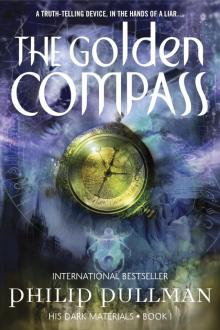 The Golden Compass
The Golden Compass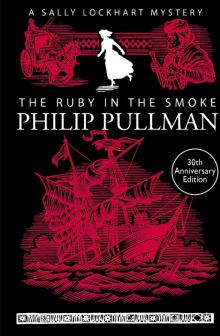 The Ruby in the Smoke
The Ruby in the Smoke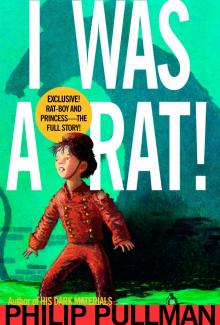 I Was a Rat!
I Was a Rat! Once Upon a Time in the North
Once Upon a Time in the North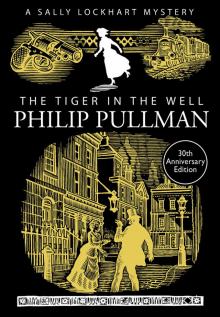 The Tiger in the Well
The Tiger in the Well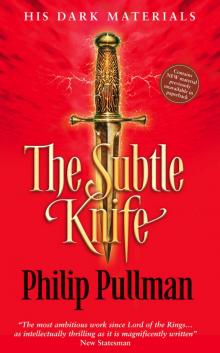 The Subtle Knife
The Subtle Knife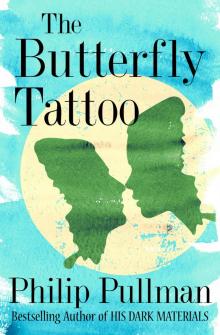 The Butterfly Tattoo
The Butterfly Tattoo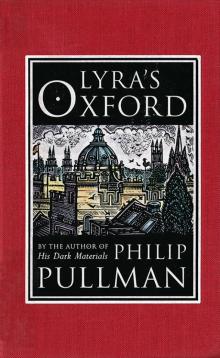 Lyra's Oxford
Lyra's Oxford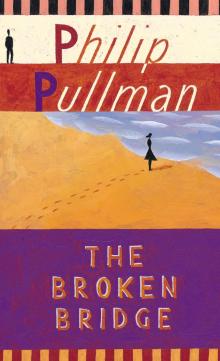 The Broken Bridge
The Broken Bridge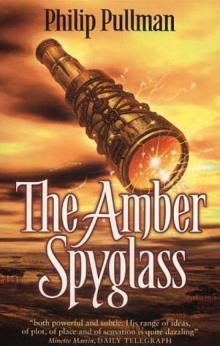 The Amber Spyglass
The Amber Spyglass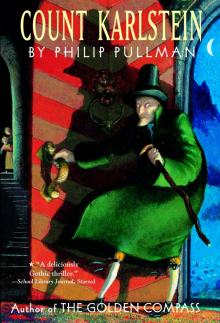 Count Karlstein
Count Karlstein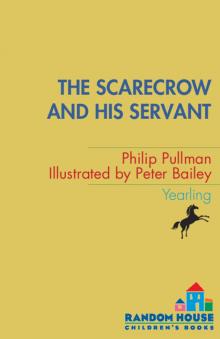 The Scarecrow and His Servant
The Scarecrow and His Servant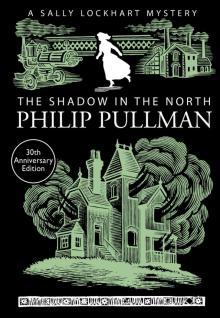 The Shadow in the North
The Shadow in the North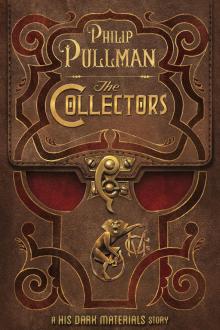 The Collectors
The Collectors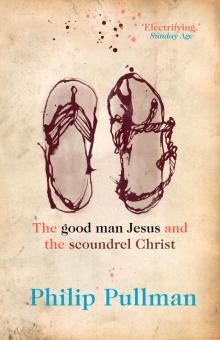 The Good Man Jesus and the Scoundrel Christ
The Good Man Jesus and the Scoundrel Christ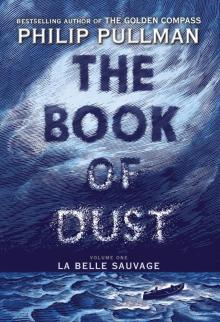 La Belle Sauvage
La Belle Sauvage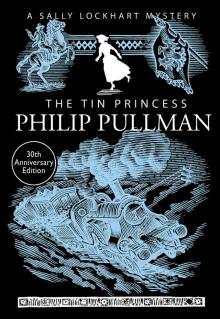 The Tin Princess
The Tin Princess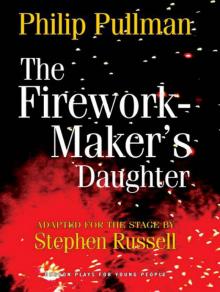 The Firework-Maker's Daughter
The Firework-Maker's Daughter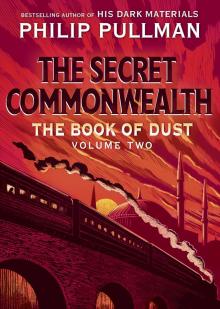 The Book of Dust: The Secret Commonwealth (Book of Dust, Volume 2)
The Book of Dust: The Secret Commonwealth (Book of Dust, Volume 2)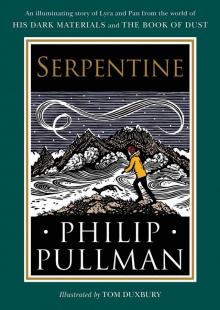 Serpentine
Serpentine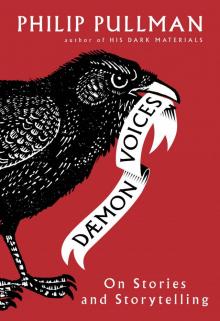 Daemon Voices
Daemon Voices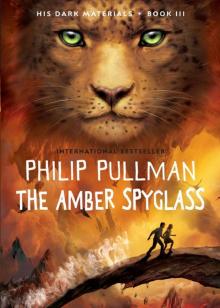 The Amber Spyglass: His Dark Materials
The Amber Spyglass: His Dark Materials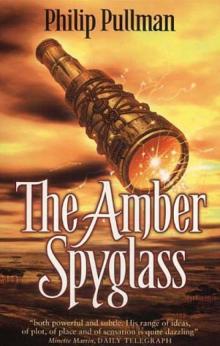 The Amber Spyglass hdm-3
The Amber Spyglass hdm-3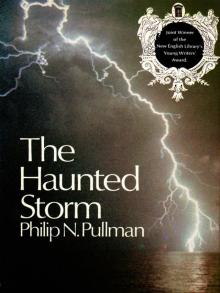 The Haunted Storm
The Haunted Storm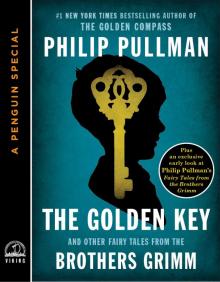 The Golden Key
The Golden Key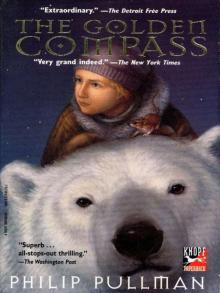 His Dark Materials 01 - The Golden Compass
His Dark Materials 01 - The Golden Compass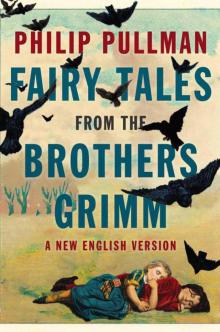 Fairy Tales from the Brothers Grimm: A New English Version
Fairy Tales from the Brothers Grimm: A New English Version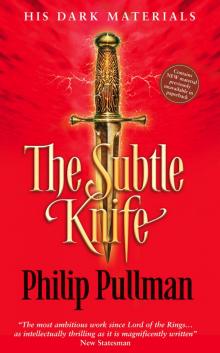 His Dark Materials 02 - The Subtle Knife
His Dark Materials 02 - The Subtle Knife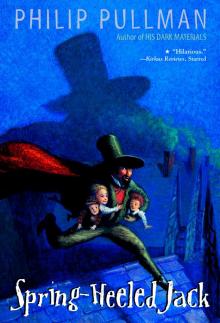 Spring-Heeled Jack
Spring-Heeled Jack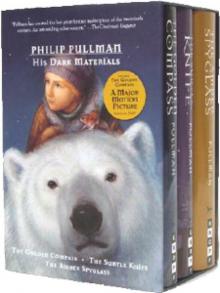 The Golden Compass hdm-1
The Golden Compass hdm-1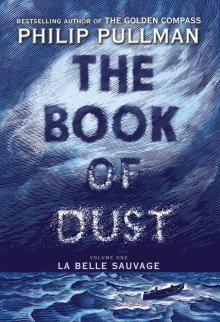 The Book of Dust, Volume 1
The Book of Dust, Volume 1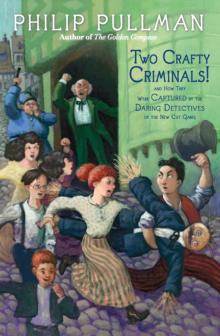 Two Crafty Criminals!
Two Crafty Criminals!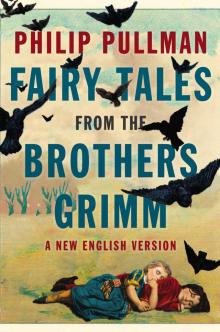 Fairy Tales from the Brothers Grimm
Fairy Tales from the Brothers Grimm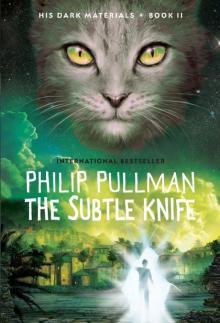 The Subtle Knife: His Dark Materials
The Subtle Knife: His Dark Materials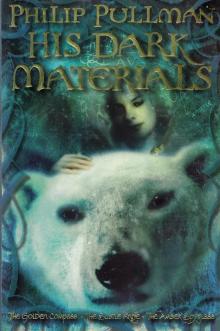 His Dark Materials Omnibus
His Dark Materials Omnibus The Golden Compass: His Dark Materials
The Golden Compass: His Dark Materials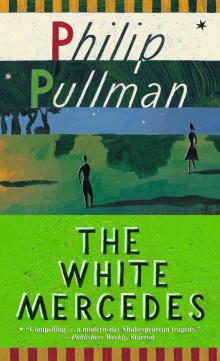 The White Mercedes
The White Mercedes